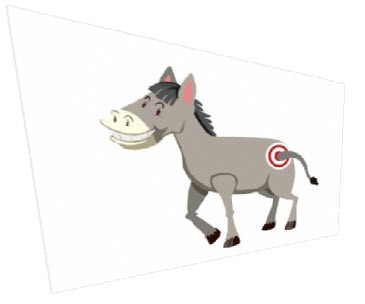 It never fails. When I publish an article or present a case study in an educational forum, curious souls ask the same question—over and again. How long did that research take?
It never fails. When I publish an article or present a case study in an educational forum, curious souls ask the same question—over and again. How long did that research take?
The answer often triggers a gasp—or dead silence—followed by, “But if I spend that long on each problem, I’ll never get My Project done!”
So?
What is the goal of historical research? What should be the goal for those of us who pursue this passion? Is it gathering lots of information in which someone asserts something we can grab and run with, regardless of how flimsy (or non-existent) the evidence is? Or to create reliable research that will help others—not mislead them for years to come?
I’ve thought about this often over the past few months amid yet another effort to reconstruct the life of a man of a common name whom history credits with all sorts of exploits he never did. A man to whom people attribute a philosophy he never had. A man whom genealogists—and historians who naively use online trees and think, “Oh, the genealogists have already done the work, so I don’t have to”—have attached to a family to which he never belonged
Yes, academic historians live in a publish-or-perish environment in which hiring, job tenure, and promotions rest upon the amount of research published.
Family historians typically live under a different pressure: woefully limited time to indulge in research, outside the employment that supports them and their families.
As a trained historian who has spent her professional career as an “independent scholar,”* I’ve spent much of that time cleaning up messes made amid rushes to judgment by those who feel pressured to reach quick conclusions.
How much better would our research be if each of us were to commit ourselves to quality rather than quantity? If we keep just two basic thoughts in mind, we can better our productivity and turn frustrations into success.
Thought 1:
Whether academic or hobbyist: "Name’s the same" doesn’t mean the person is.
Thought 2:
Conclusions made from finding random references to a name—i.e., unplanned, incomplete research—are the equivalent of blindfolding ourselves and trying to pin the tail on the donkey. Once in a blue moon we’ll actually hit our mark. Are you satisfied with that?
*Independent scholar: a fancy term for those who’d rather do research than full-time, classroom teaching; and so they cobble together a research-based livelihood to support their love.
IMAGE CREDITS:
Adapted from CanStockPhoto (https://www.canstockphoto.com/donkey-and-pinata-set-6025421… : downloaded 4 December 2018), item csp60254218 uploaded by bluering on 2018-08-22; used under license.
HOW TO CITE:
Elizabeth Shown Mills, "Quality vs. Quantity," blog post, QuickTips: The Blog @ Evidence Explained (https://www.evidenceexplained.com/quicktips/quality-vs-quantity : posted 4 December 2018).